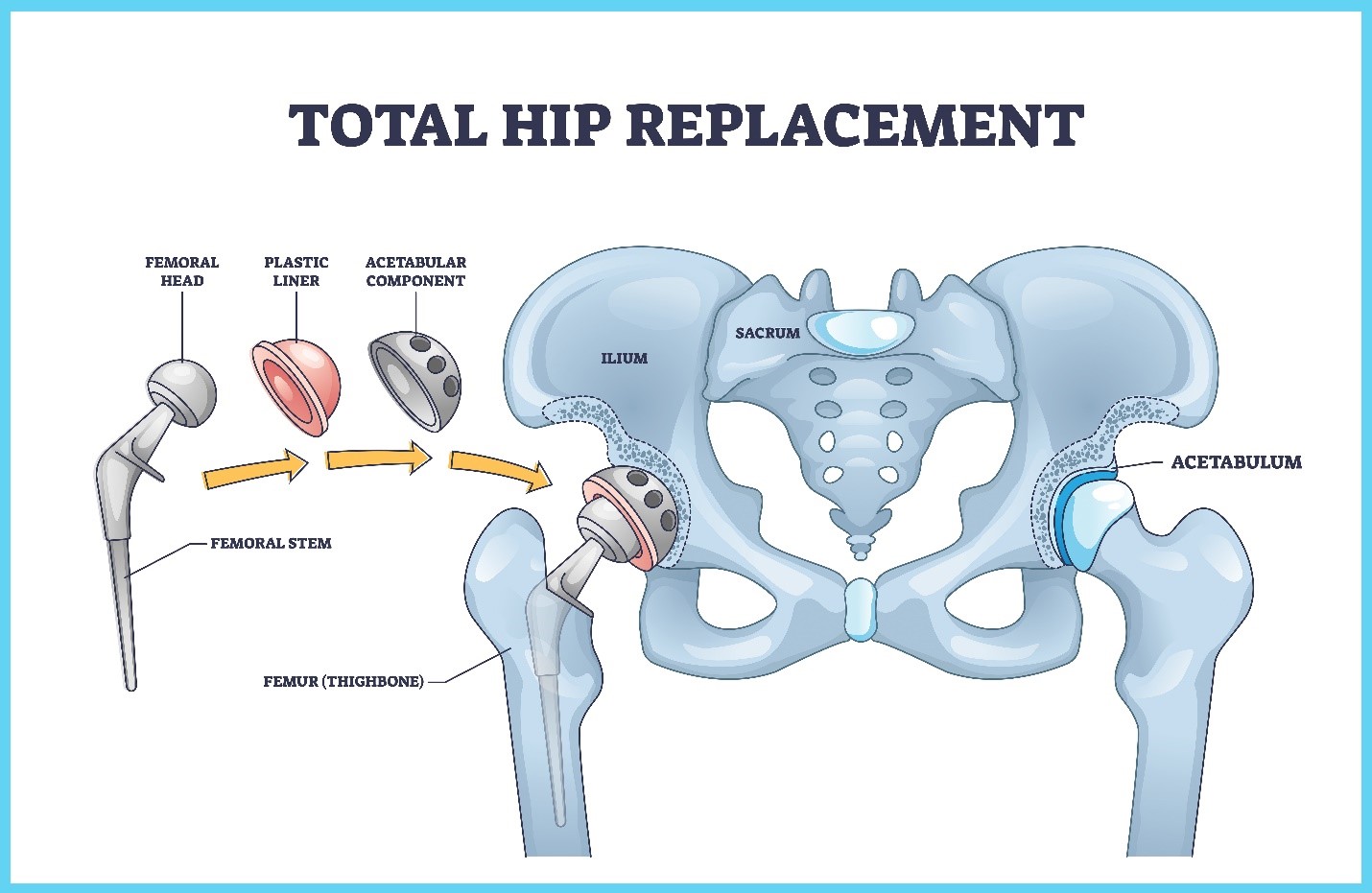

Total hip replacement is a surgical operation in which artificial implants are used to replace worn-out or damaged hip parts. The socket is changed out for a sturdy plastic cup that might or might not have a titanium metal casing. Your femoral head will be removed and changed out for a metal alloy or ceramic ball. A metal stem that is placed into the top of your femur is connected to the prosthetic ball.
Comparing revision surgery to a total hip replacement is not appropriate. The revision total hip replacement process is more difficult and time-consuming. To get a successful result, substantial planning is necessary, along with the use of specialized implants and instruments.

The main objective of hip revision surgery is to fix an artificial hip implant that may no longer be tightly fastened to the bone, leading to pain for the patient from aberrant mobility. It is done to fix the hip and get it back to where it can function normally.
Revision Total Hip Replacement may be an option if hip pain:
Your doctor will evaluate a number of factors, including the amount of residual bone, if your implant is loosened, and the precise position of the fracture, to decide whether a revision is necessary. An implant itself may crack under exceptional circumstances. revision hip replacement is necessary in that scenario.
Technically speaking, a revision hip replacement surgery is often more challenging than the first. In most cases, a longer incision is necessary. It may be more difficult to expose (see) the joint and the implants if there is scar tissue. During the process, it is important to carefully identify any structures that may be buried or concealed by scar tissue, such as nerves and blood arteries.
Dissection involving a larger surgical exposure is necessary. All of the components must be modified or removed, depending on whether the revision is complete or partial. If a part needs to be removed from bone but is securely fastened to the bone, the component must first be freed from the bone. If the component was originally glued into place, it could take a lot of work to get rid of all the cement and expose the new, healthy bone.

There are many types of Revision total hip replacement surgery. Sometimes the prosthesis just has to have a few parts altered. In some situations, the entire prosthesis must be taken out or replaced, and the hip's surrounding bone must be reconstructed using bone grafts or augments (metal pieces that fill in the gaps left by missing bone).
Book a free online consultation regarding revision total hip replacement at neemtreehealthcare.com today

50+ Specialist Onbaord

35+ Years of Experience

24X7 Medical Assistance

Free Pick & Drop

PSUs & TPA & Insurances are Accepted

All Govt Panels Accepted

Post Surgical Rehabilitation

EMI Option Available

Post Discharge Home Care

Transparency

Hassle Free TPA/Panel Desk

Medical Visa Assistance
Our proficient team of skilled and best revision total hip replacement specialists, doctors/surgeons in Delhi, provide best-in-class treatment to ensure pain relief, improved mobility and a better quality of life. Our compassionate and immensely experienced panel of revision total hip replacement specialists doctors/surgeons adhere to world-class technology for innovative care and seamless assistance for your speedy recovery.